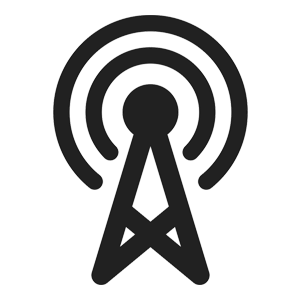ABOUT THE MBA PROGRAM
EMBA ProgramThe Executive MBA (EMBA) program at the World University of Bangladesh readies executive students for a successful career in one of thirteen key specializations, allowing them to tailor their degree to align with individual goals. For working professionals, lesson delivery modalities are flexible and ideal.
In today's challenging job market, an EMBA provides students with the competitiveness needed for employment, advancement, and leadership and management prospects. An EMBA from the World University of Bangladesh equips students with highly transferable abilities such as problem-solving, critical thinking, strategic planning, negotiating skills, time and people management, and more, preparing them for leadership roles. The program emphasizes the utilization of current events to provide real-world relevance that can be easily applied to professional settings.
The EMBA program spans 48 credit hours, including 18 credit hours of foundation courses, 12 credit hours of general courses, 12 credits of major courses, and 6 credit hours of thesis. To be awarded the EMBA degree, a student must achieve a CGPA of at least 2.50.
MBA (Regular) ProgramThe MBA program at the World University of Bangladesh prepares students for a successful career in one of thirteen key specializations, providing them with the flexibility to personalize their degree to align with individual goals. For working professionals, lesson delivery modalities are flexible and ideal.
In today's challenging job market, an MBA provides students with the competitiveness needed for employment, advancement, and leadership and management prospects. An MBA from the World University of Bangladesh equips them with highly transferable abilities such as problem-solving, critical thinking, strategic planning, negotiating skills, time and people management, and more, preparing them for leadership roles. The program emphasizes the utilization of current events to provide real-world relevance that can be easily applied to professional settings.
The MBA program spans 66 credit hours, including 18 credit hours of foundation courses, 30 credit hours of general courses, 12 credits of major courses, and 6 credit hours of thesis. To be awarded the MBA degree, a student must achieve a CGPA of at least 2.50.
There are thirteen majors in the MBA program, namely:
- Management
- Marketing
- Finance
- Accounting
- Management Information System (MIS)
- Human Resource Management (HRM)
- E-Business
- Leadership
- Textile and Apparel Management
- Real Estate Management
- Banking
- Retail Marketing
- Tourism & Hospitality Management
Vision of MBA Program
The vision of the MBA program is to provide our graduates with the contemporary knowledge, skills, attitude, and values required to be a business leader of high thinking management professionals, entrepreneurs and socially responsible citizens.
Mission of MBA Program
The mission of the MBA program is to provide students with the latest concepts and skills and prepare them to handle challenges of the contemporary business world with leadership, entrepreneurial skills, and ethics as well as the ability of strategic thinking, problem solving, critical analysis, and efficient communication.
Graduate Attributes
| Critical Thinking: | Sustainability: |
| Problem Solving | Entrepreneurial skills/risk taker |
| Analytical skills | Motivation & initiative |
| Detail oriented | Flexibility/adaptability |
| Tactfulness | Computer/IT skills |
| Creativity | Lifelong Learning |
| Numerical Skills | Self confidence |
| Teamwork: | Ethical Practice: |
| Communication (verbal & written) | Honesty/Integrity |
| Teamwork skills | Strong work ethics |
| Interpersonal skills | Well-mannered / polite |
| Organizational skills | Personal Development |
| Leadership skills | Commitment |
| Amiable personality |
Program Educational Objectives (PEO)
- Apply acquired knowledge and IT skills through continuous development.
- Have research skills to identify and resolve complex business problems
- Apply innovative ideas and critical thinking for business development.
- Ability to communicate in ensuring teamwork and interpersonal relationship management.
- Have managerial/leadership skills with the professional ethics to deal with diverse business.
Program Learning Outcomes (PLO)
Fundamental Skills:
- PO 1: Business Knowledge
- PO 2: IT Skills
- PO 3: Research Skills
Social Skills:
- PO 4: Communication Skills
- PO 5: Teamwork
- PO 6: Interpersonal Relationship Management
Thinking Skills:
- PO 7: Complex Problem solving skills
- PO 8: Critical Analysis
- PO 9: Innovative Thinking
Personal Skills:
- PO 10: Managerial/leadership skills
- PO 11: Professional Ethics
- PO 12: Lifelong learning
WHY THE MBA @ WUB?
The Master of Business Administration (MBA) is a postgraduate qualification in business administration and is an increasingly popular program offered by business schools around the world. It attracts students from a wide range of academic disciplines and working background.
A typical MBA program consists of foundation courses, general courses and specialization courses or major. Students traditionally study a wide breadth of foundation courses in the program’s first semester, then pursue the general courses in the second and third semesters followed by the major courses in the final semesters. The foundation and general courses in the MBA program introduce students to the various areas of business such as accounting, economics, finance, international business, organizational behavior, marketing, strategy, operations management etc. After completing these courses, students in the MBA program can choose an area of concentration or specialization.

Why do an MBA?
The MBA is one of several business degrees that provide a huge impact on career advancement. Its value lies in the knowledge and skills that will make you a better manager, leader and best working professional and the global network you build in your MBA class may be very helpful in the future. Below are some common reasons people enroll in an MBA program:

Skills Development

Networks

Personal Rewards

Personal Development

Skills Development
The skills you learn in your MBA classes can be divided into two types: hard and soft skills. Hard skills include business and organization knowledge such as economics, finance, marketing, operations, management, and accounting. Our MBA program offers specialization in several disciplines especially retail marketing, e-commerce, marketing management, corporate finance, textile and apparel management, human resource management, real estate management, etc; thus, providing opportunities to study in domains with greater depth. Such programs allow students to become very specialized and can help them advance in their chosen field of study.
On other and, soft skills denote to leadership, teamwork, morals, and interaction skills that a good manager need to possess. In an MBA class, the assessment is based on assignments, case studies, and presentations. Student learn teamwork, leadership, ability to motivate and coordinate with others. WBS MBA helps to build on communication skills as well as knowledge about the changing economic and social world. An added advantage for pursing an MBA enhances one’s ability to listen and speak carefully and clearly, and the ability to put across one’s arguments about the business problem in a more illustrative way.

Networks
An MBA degree program offers access to a network of MBA students, alumni, faculty, business and community leaders. Many MBA alumni form lifetime friendship and business partnership from the contacts in their MBA classes. As many of the students will become very successful in the future, such network can be very profitable and rewarding. In a typical MBA class you will find not only students from your industry but also from other parts of the country.

Networks
Earn a better salary. The MBA will make you more marketable when you switched company. Also, the skills you learned will increase your performance and managerial competence, enabling you to advance further and faster in your career. An MBA is sometimes a requirement of some large multinational companies or consulting companies to join their management team.

Personal Development
The MBA program will help develop you in the areas of critical thinking skills, strategic and tactical planning, leadership, interpersonal and communication skills, increased organization abilities and the ability to see the organization as a whole.

Return on your Investment
An MBA takes a lot of effort and sacrifices. You need to contemplate if it is worth it. The decision depends very much on your career goals and objectives. If you wish to pursue areas of management (especially in the corporate sector) then an MBA is a viable option.
Also, bear in mind that the MBA is not an end in itself. The MBA merely builds you a good foundation and gives you the ability to develop your career to its fullest potential, at an accelerated pace.

Career Advancement
You may want to gain a position of greater responsibility in your current field. Or you may want to switch from one area of business to another-from marketing or sales to strategic planning or finance, for example.
An MBA is undertaken by a person who is employed. It is necessary to enhance his skills and credentials in the market place. Considering the busy schedule of a candidate, the MBA at WSB adopts a blending learning approach. This means in addition to classroom live lectures; the materials will be available in a Learning Management System (LMS). The LMS can be accessible by the student in all settings which means he or she can access class materials while he/she is traveling or at any time of the day. This gives the student the necessary flexibility and pace in learning and completing assignments. Not only that, students can skip attendance of classes when stuck in traffic or when workload at workplace is intense.
| Foundation Courses: | |
|---|---|
| BUS 02311101 | Business Communication |
| ACC 04111103 | Financial Accounting |
| MKT 04141104 | Principles of Marketing |
| MGT 04131206 | Principles of Management |
| BUS 04131205 | Introduction to Business |
| MAT 05421102 | Statistics in Business |
| General Courses: | |||
|---|---|---|---|
| BUS 04121207 | International Business | ECO 03111208 | Managerial Economics |
| FIN 04121309 | International Financial System | RES 04171310 | Business Research Method |
| CSE 06111311 | Computer Application in Business | MAT 05411312 | Management Science |
| MGT 04132113 | Strategic Management | MKT 04142114 | Marketing Management |
| MGT 04132115 | Organizational theory and Behavior | ACC 04112116 | Management Accounting |
Major Courses
 Management (MGT)
Management (MGT)
| Management (MGT) | |
|---|---|
| MGT 04132217 | Total Quality Management |
| MGT 04132218 | Project Management |
| MGT 04132219 | Managing Innovation and Organizational Change |
| MGT 04132220 | Management of Technology and Competitive Strategy |
 Marketing Management (MKT)
Marketing Management (MKT)
| Marketing Management (MKT) | |
|---|---|
| MKT 04142217 | Customer Relationship Management |
| MKT 04142218 | Integrated Marketing Communication |
| MKT 04142219 | E-Marketing |
| MKT 04142220 | Brand Management |
 Corporate Finance (FIN)
Corporate Finance (FIN)
| Corporate Finance (FIN) | |
|---|---|
| FIN 04122217 | Capital Investment |
| FIN 04122218 | International Finance |
| FIN 04122219 | Comparative Financial Systems |
| FIN 04122220 | Commercial bank Management |
 Management Information Systems (MIS)
Management Information Systems (MIS)
| Management Information Systems (MIS) | |
|---|---|
| MIS 06112217 | Data Base Management System |
| MIS 06112218 | Implementation of Information Systems |
| MIS 06112219 | Manufacturing System Analysis |
| MIS 06112220 | Management of Technology |
 Accounting (ACC)
Accounting (ACC)
| Accounting (ACC) | |
|---|---|
| ACC 04112217 | Advanced Management Accounting |
| ACC 04112218 | Advanced Accounting |
| ACC 04112219 | Accounting Information system |
| ACC 04112220 | Accounting Theory |
 Human Resource Management (HRM)
Human Resource Management (HRM)
| Human Resource Management (HRM) | |
|---|---|
| HRM 04132217 | Industrial Relations |
| HRM 04132218 | Performance Appraisal |
| HRM 04132219 | Management of Change |
| HRM 04132220 | Strategic Human Resource Management |
 Textile and Apparel Management
Textile and Apparel Management
| Textile and Apparel Management | |
|---|---|
| TAM 07232217 | Fabric manufacture and Fabric Structure |
| TAM 07232218 | Garment Manufacturing/Apparel Technology |
| TAM 07232219 | Dyeing and Finishing |
| TAM 07232220 | Textile Marketing & Merchandising |
 Retail Marketing
Retail Marketing
| Retail Marketing | |
|---|---|
| RTM 04142217 | Retail Branding |
| RTM 04142218 | Retail Marketing |
| RTM 04142219 | E-Business in Retail |
| RTM 04142220 | Logistics and Channel Management |
 E-Business
E-Business
| E-Business | |
|---|---|
| EBS 04162217 | Fundamentals of E-Business |
| EBS 04132218 | Management of Technology |
| EBS 06112219 | Implementation of Information Systems |
| EBS 04142220 | E-Marketing |
 Real Estate Management
Real Estate Management
| Real Estate Management | |
|---|---|
| EST 07322217 | Principles of Real Estate |
| EST 04122218 | Real Estate Financing |
| EST 04212219 | Law of Land in Bangladesh |
| EST 04122220 | Real Estate Investments |
 Tourism & Hospitality Management
Tourism & Hospitality Management
| Tourism & Hospitality Management | |
|---|---|
| THM 10152217 | Introduction to Tourism & Hospitality Management |
| THM 10152218 | Tourism, Supply-Demand Planning & Development |
| THM 10152219 | Research and Marketing for Tourism & Hospitability Management |
| THM 10152220 | E-Marketing and E-Tourism |
 Leadership
Leadership
| Leadership | |
|---|---|
| LEA 04132217 | Dynamics of Leadership |
| LEA 04132218 | Organizational Change and Transition |
| LEA 04132219 | Creativity and Innovation in Leadership |
| LEA 04132220 | Leadership Ethics |
 Banking
Banking
| Banking | |
|---|---|
| BNK 04122217 | Retail Banking & E-Banking |
| BNK 04122218 | Central Banking: Regulations & Supervision |
| BNK 04122219 | Merchant Banking & Investment Banking |
| BNK 04122220 | Social Responsibilities and Ethics in Banking |
 Internship/Dissertation
Internship/Dissertation
| Internship/Dissertation |
|---|
|
Students are required to submit a dissertation or project based on an internship period of four (4) months. The internship will carry six (6) credits and will be evaluated by a panel of experts. Students will be required to defend their thesis prior to graduation. |
| Foundation Courses: | |
|---|---|
| BUS 02311101 | Business Communication |
| ACC 04111103 | Financial Accounting |
| MKT 04141104 | Principles of Marketing |
| MGT 04131206 | Principles of Management |
| BUS 04131205 | Introduction to Business |
| MAT 05421102 | Statistics in Business |
| General Courses: | |||
|---|---|---|---|
| BUS 04121207 | International Business | ||
| RES 04171310 | Business Research Method | ||
| MGT 04132113 | Strategic Management | ||
| ACC 04112116 | Management Accounting | ||
Major Courses
 Management (MGT)
Management (MGT)
| Management (MGT) | |
|---|---|
| MGT 04132217 | Total Quality Management |
| MGT 04132218 | Project Management |
| MGT 04132219 | Managing Innovation and Organizational Change |
| MGT 04132220 | Management of Technology and Competitive Strategy |
 Marketing Management (MKT)
Marketing Management (MKT)
| Marketing Management (MKT) | |
|---|---|
| MKT 04142217 | Customer Relationship Management |
| MKT 04142218 | Integrated Marketing Communication |
| MKT 04142219 | E-Marketing |
| MKT 04142220 | Brand Management |
 Corporate Finance (FIN)
Corporate Finance (FIN)
| Corporate Finance (FIN) | |
|---|---|
| FIN 04122217 | Capital Investment |
| FIN 04122218 | International Finance |
| FIN 04122219 | Comparative Financial Systems |
| FIN 04122220 | Commercial bank Management |
 Management Information Systems (MIS)
Management Information Systems (MIS)
| Management Information Systems (MIS) | |
|---|---|
| MIS 06112217 | Data Base Management System |
| MIS 06112218 | Implementation of Information Systems |
| MIS 06112219 | Manufacturing System Analysis |
| MIS 06112220 | Management of Technology |
 Accounting (ACC)
Accounting (ACC)
| Accounting (ACC) | |
|---|---|
| ACC 04112217 | Advanced Management Accounting |
| ACC 04112218 | Advanced Accounting |
| ACC 04112219 | Accounting Information system |
| ACC 04112220 | Accounting Theory |
 Human Resource Management (HRM)
Human Resource Management (HRM)
| Human Resource Management (HRM) | |
|---|---|
| HRM 04132217 | Industrial Relations |
| HRM 04132218 | Performance Appraisal |
| HRM 04132219 | Management of Change |
| HRM 04132220 | Strategic Human Resource Management |
 Textile and Apparel Management
Textile and Apparel Management
| Textile and Apparel Management | |
|---|---|
| TAM 07232217 | Fabric manufacture and Fabric Structure |
| TAM 07232218 | Garment Manufacturing/Apparel Technology |
| TAM 07232219 | Dyeing and Finishing |
| TAM 07232220 | Textile Marketing & Merchandising |
 Retail Marketing
Retail Marketing
| Retail Marketing | |
|---|---|
| RTM 04142217 | Retail Branding |
| RTM 04142218 | Retail Marketing |
| RTM 04142219 | E-Business in Retail |
| RTM 04142220 | Logistics and Channel Management |
 E-Business
E-Business
| E-Business | |
|---|---|
| EBS 04162217 | Fundamentals of E-Business |
| EBS 04132218 | Management of Technology |
| EBS 06112219 | Implementation of Information Systems |
| EBS 04142220 | E-Marketing |
 Real Estate Management
Real Estate Management
| Real Estate Management | |
|---|---|
| EST 07322217 | Principles of Real Estate |
| EST 04122218 | Real Estate Financing |
| EST 04212219 | Law of Land in Bangladesh |
| EST 04122220 | Real Estate Investments |
 Tourism & Hospitality Management
Tourism & Hospitality Management
| Tourism & Hospitality Management | |
|---|---|
| THM 10152217 | Introduction to Tourism & Hospitality Management |
| THM 10152218 | Tourism, Supply-Demand Planning & Development |
| THM 10152219 | Research and Marketing for Tourism & Hospitability Management |
| THM 10152220 | E-Marketing and E-Tourism |
 Leadership
Leadership
| Leadership | |
|---|---|
| LEA 04132217 | Dynamics of Leadership |
| LEA 04132218 | Organizational Change and Transition |
| LEA 04132219 | Creativity and Innovation in Leadership |
| LEA 04132220 | Leadership Ethics |
 Banking
Banking
| Banking | |
|---|---|
| BNK 04122217 | Retail Banking & E-Banking |
| BNK 04122218 | Central Banking: Regulations & Supervision |
| BNK 04122219 | Merchant Banking & Investment Banking |
| BNK 04122220 | Social Responsibilities and Ethics in Banking |
 Internship/Dissertation
Internship/Dissertation
| Internship/Dissertation |
|---|
|
Students are required to submit a dissertation or project based on an internship period of four (4) months. The thesis/internship will carry six (6) credits and will be evaluated by a panel of experts. Students will be required to defend their thesis prior to graduation. |
WHAT OUR STUDENTS SAYS?

Muhammad Abdullah Al Momen
Assistant General Manager
MIS & Statistics Division
Sonali Bank Limited
Head Office, Motijheel, Dhaka.
World University of Bangladesh provides the best and utility based education within the affordable expenditure. The management of WUB ensures quality teachers to be hired. I woe to the university specifically to the VC Mr. Abdul Mannan Chowdhury, my guide, physopher who has immense influence on me.

Mohammad Anwar Hossain
A University that manifests its commitment, where students receive quality education. WUB focuses on job oriented education which ecompasses over the requirements of the ages and generations. It is apparent that, will establish its scholarly milestones in every sector of discipline. I wish it success everywhere.

Pramit Pradhan
I did MBA from WUB in Year January 2007 to December 2008, it was great learning exprience here and help me improve my acedimic career. I would like to thank all my teachers, friends and entire WUB staff for their support and friendly environment. I wish entire family of WUB.
Why You Are Right For The World Business School MBA
- Experienced: You are a practicing manager with at least three years’ relevant postgraduate working experience.
- Ambitious: seek better, smarter ways of doing business through a course of learning that you can apply directly to business problems.
- Self-developing: You want to develop yourself and your career beyond the boundaries of your normal working environment.
- Sharing: You wish to benefit from the experience and knowledge of fellow managers in a truly international environment.
- Demanding: You want a comprehensive, challenging program of management development from a world-class business school.
- Hard-working: You are not afraid of hard work - you know that the effort we require of you will help you to mature personally.
In essence, the MBA makes you to:
- Enhance your capability to lead, think and act strategically
- Gain knowledge to apply your own organization and many other situations
- Extend your leadership capabilities.
- Obtain a holistic view of the organization that you work in and other departments
- Understand the environment surrounding your organization.
- Equip yourself with comprehension and proficiency to meet the challenges of senior management
- Help you gain promotion and move up the career ladder faster.
- Network with other students and alumni group.
- Buildup your employability.
- Acquire subject area expertise
Why study with us?
- Online/blended teaching learning system
- Outcome Based Education (OBE)
- 100% full time faculty members
- Qualified faculty members (Ph.D, M.Phil, Foreign Degrees)
- Membership with ACBSP and AACSB
- Affordable tuition fee
- Various waivers are available for financial assistance to the students.
- Exchange programs with some renowned foreign universities.
Tuition fees
Tuition Fees for Master of Business Administration (Regular)
| Duration | 2 years |
| Total Semester | 6 |
| Total Credit | 66 |
| Cost per Credit | Tk. 3,100 |
| Tuition Fee | Tk. 1,86,000 |
| Basic Fee | Tk. 119000 |
| Total Cost | Tk. 305000 |
Tuition Fees for Master of Business Administration (Executive)
| Duration | 1.5 years |
| Total Semester | 4 |
| Total Credit | 48 |
| Cost per Credit | Tk. 3,100 |
| Tuition Fee | Tk. 1,30,200 |
| Basic Fee | Tk. 96500 |
| Total Cost | Tk. 226700 |
Tuition Fees for Master of Business Administration (Direct)
| Duration | 1 year |
| Total Semester | 3 |
| Total Credit | 42 |
| Cost per Credit | Tk. 3,100 |
| Tuition Fee | Tk. 111600 |
| Basic Fee | Tk. 86,500 |
| Total Cost | Tk. 198100 |
ADMISSION REQUIREMENT
Master of Business Administration (Regular)
- Graduate in any discipline.
- Combined GPA of 5.0 in S.S.C and H.S.C with minimum 2.5 in each or total GPA of 6.00* with minimum GPA of 2.00 either in S.S.C or in H.S.C.
- Students completing five GCE O-level subjects and at least two A-level subjects may apply. Out of these 7 subjects applicants must have minimum 4 ‘B’ grade & 3 ‘C’ grade.
Master of Business Administration (Executive)
- Graduate with minimum 14 years of schooling in Commerce, Business, Science or Arts, Medical Science or Engineering or Equivalent and worth at three (3) years of working experience.
- CGPA requirements are same as mentioned in the MBA (Regular)
